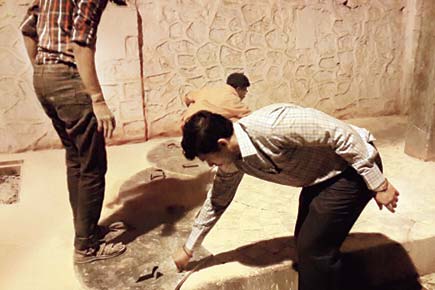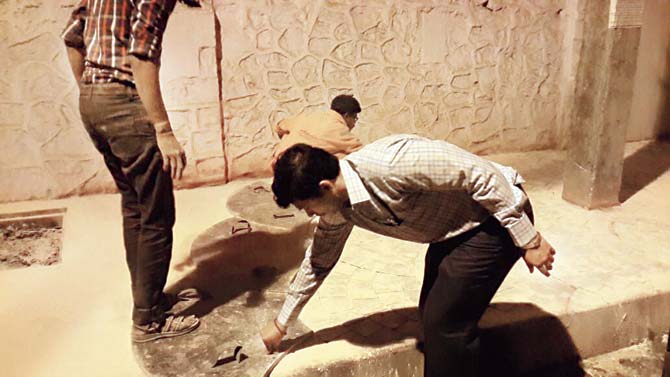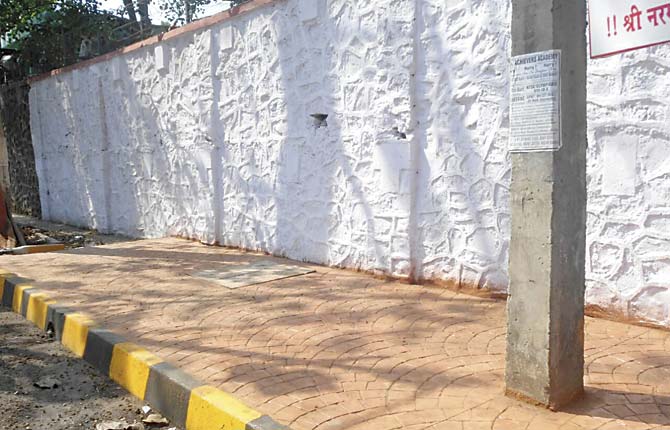The move comes after BMC received complaints regarding paver blocks; civic body successful ran a pilot project on VN Purav Marg, Chembur to test a batch of ‘concrete-stamp’ footpaths

After several citizens complained of shoddy paver blocks on footpaths, the BMC is now planning to do away with them altogether. The civic body recently ran a successful pilot project on VN Purav Marg in Chembur to test a batch of ‘concrete-stamp’ footpaths instead of the old, lacquered paver blocks, which could be rolled out to all parts of the city in the future.
ADVERTISEMENT

The procedure involves placing a layer of a special-type of M-30 grade concrete on the footpath and then using stamps to give a paver-like impression
A Roads department engineer said, “We had received a lot of complaints regarding paver blocks since they were inconveniencing pedestrians. We had been looking for a solution for this problem for a long time.” “The BMC therefore decided to run a pilot project where all the existing paver blocks were removed and replaced with concrete-stamp footpaths. We selected Chembur’s V N Purav Marg for this project.
![]()
A 10-metre patch was earmarked for this which was undertaken on April 6. Work was completed within a day,” he added. This technology has been used in Mumbai for the first time at the initiative of Vishal Thombare, an engineer with the BMC’s Roads department. The concrete was provided free of cost by a city-based company called Lafarge Concretes.
Talking about the technology, Thombare added, “The procedure involves placing a layer of a special-type of M-30 grade concrete on the footpath and then using stamps to give a paver-like impression. It looks exactly like a paver block but is not slippery.”
Thombare also claimed that these footpaths have a longer life, of about 12 years as against the existing paver blocks on footpaths which last only for about five years. “They will save the BMC approximately Rs 1,000 per sq metre.

It looks like a paver block but is not slippery
This means that while a sq metre patch of paver blocks costs the BMC Rs 2,700, the stamp-concrete technology will cost the BMC only Rs 1,700 (including material, labour and other costs). Besides, the procedure can be completed only in a couple of days and can be replicated on jogging tracks, footpaths, walkways, parking lots, etc,” Thombare added.
Ashok Pawar, chief engineer of the Roads department, said, “We made a presentation of the successful pilot project to additional municipal commissioner SVR Srinivas on Thursday. He appreciated the concept and has now asked us to submit a detailed proposal for approval.”
 Subscribe today by clicking the link and stay updated with the latest news!" Click here!
Subscribe today by clicking the link and stay updated with the latest news!" Click here!






